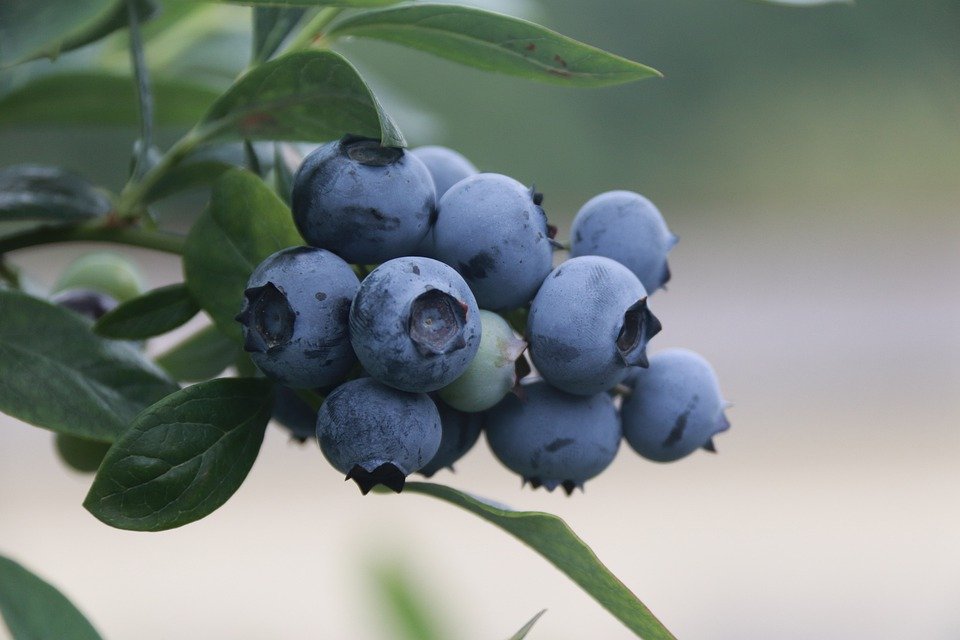A multidisciplinary team of scientists from the University of Coimbra (UC) found that the continued consumption of blueberries in daily doses of about 240 grams has a strong liver impact, providing important clues to guide a healthy and safe consumption of these berries, which are very rich in antioxidants.
The discovery, already published in the journal Pharmaceuticals, took place during a study that aims to evaluate the possible beneficial effects of blueberry juice in the context of pre-diabetes, in an animal model.
Considering the enriched phytochemical composition of blueberry, in a diversity of bioactive compounds «that seem to be able to confer numerous protective effects in different conditions, it seemed very pertinent to us also to understand the impact of consuming this “superfood” for a long time, in a healthy condition». explain the study coordinators, Flávio Reis and Sofia Viana, from the Institute of Clinical and Biomedical Research of Coimbra (iCBR), of the Faculty of Medicine of the University of Coimbra (FMUC).
To this end, the researchers evaluated a set of metabolic parameters, with emphasis on the liver, and in particular on the mitochondrial functions, in adult rats submitted for 14 weeks to a regular consumption of natural blueberry juice (equivalent in man to a cup and half of juice per day).
At the end of the experiment, when analyzing the results, namely at the level of the mitochondria – the energy house of the cell – hepatic, it was observed that in pre-diabetic rats “there was protection from hepatic steatosis (accumulation of fat in the liver) and an impact enormous at the level of mitochondria», says Sara Nunes, PhD student in the scope of this project.
In the case of healthy rats, he emphasizes, «we verified that the consumption of blueberry juice had no impact on the metabolic profile and no changes were registered at the intestinal level. However, the hepatic impact was surprising, particularly on mitochondrial function, similar to an effect of a hypercaloric diet».
The results observed in healthy rats suggest that the continued consumption of blueberries forces a metabolic reprogramming, whose consequences (beneficial or harmful) remain to be clarified. The team believes that "the strong impact on the liver generated by the continued consumption of blueberries can prevent or alleviate disease contexts, such as diabetes and obesity, but we cannot rule out the possibility of causing some kind of imbalance and having harmful consequences for health'.
Therefore, the next step of the study will focus on clarifying both hypotheses, in order to contribute to safe blueberry consumption, «in order to better elucidate whether this adaptive response resulting from prolonged blueberry consumption will translate into benefits or if, on the contrary, it could be associated with harmful effects. In the context of the current habits of a part of the population, this investigation is of particular relevance», point out Flávio Reis and Sofia Viana.
Blueberry's health benefits are closely related to its antioxidant activity, “mainly due to its high content of phenolic compounds. Its recognized antioxidant and anti-inflammatory properties are somehow responsible for the increase in consumption over the last few years", clarify the researchers, stressing, however, that "some studies have warned of possible adverse effects resulting from uncontrolled and excessive consumption of certain antioxidant products, including those enriched in phenolic compounds'.
This study is part of a broader research project, which has a partnership with the Agricultural Cooperative of Mangualde Farmers (COAPE) and MIRTILUSA (Sever do Vouga), focused on the therapeutic potential of the blueberry plant as a whole. , in addition to studying the berries (peel and pulp), the team led by Flávio Reis and Sofia Viana is exploring the potential of leaves, particularly deciduous leaves, to add value to a part of the blueberry bush that is currently a waste and that cumulatively has a much larger amount of bioactive compounds than the fruit.
In this sense, the researchers have already developed a technology for processing the leaves, which goes beyond traditional infusions, whose biomass obtained is “very promising, with very potent antioxidant properties from a therapeutic point of view”, conclude Flávio Reis and Sofia Viana.
Author: Cristina Pinto – Press Office of the University of Coimbra
© 2021 – Science in the Regional Press / Ciência Viva



















Comments